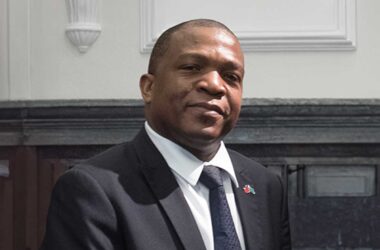THIS year’s Common Entrance results should serve as a wake-up call for local education ministry to make a few minor changes to the business of teaching our students, changes that can result in major rewards.
Statistics indicate that of the 2,419 students who sat the exam this year, 1,280 students (or 52.91%) scored at or above the national mean of 62.73%, while 1,139 students (or 47.09%) scored below the national mean. It must be noted that the national mean fell by 1.05% this year compared to last year’s average.
Significant gains were made in both Mathematics and General Paper this year, with increases of 1.17% and 3.57% respectively. However, the national mean for English Language fell from 65.24% to 57.34% compared to last year’s performance.
A staggering 169 students were unassigned following an exam in which the composite scores ranged from 14.33% to 96.33%.
Despite the marked improvements in performances for Mathematics and General Paper, the education ministry should not be blowing any trumpet or beating their chests. And while the debate rages about whether or not Kwéyòl should be taught in schools, our children certainly need to improve their performance in English Language.
The not-so-stellar Common Entrance results this year raise the perennial question once more: Should the State begin providing free after-school lessons for Grade Six students, particularly those whose parents cannot afford to pay?
The question has thus far been met with inertia on the part of authorities who either dismiss the suggestion altogether or lament the extra time teachers would need to spend in the classroom. Even the government’s wage bill will be affected by the extra hours should teachers decide to take up the challenge.
While the Common Entrance exam is known as probably the first major exam a student sits in his or her lifetime, the results suggest that a greater deal of effort needs to go into preparing our youngsters for secondary school where learning takes on an even advanced meaning.
The fact that many students barely score enough marks to attend secondary school – and others do get assigned eventually – proves that sufficient time and guidance are not being given to students facing learning difficulties in our classrooms.
With the advent of universal secondary education, which guarantees a student a place in secondary school after sitting the Common Entrance Exam, it seems that entrance to secondary schools via sitting and passing the Common Entrance Exam has no longer become common.
Aside from State-sponsored after-school lessons for students in Grade Six, those students who were initially unassigned should be made to retake the Common Entrance exam at least six months after they would have enrolled at their new secondary school. This way, students not only feel they earned their place at secondary school but also have the self-esteem required to continue improving their grades at secondary school.
Here’s hoping that the Ministry of Education learns a thing or two from this year’s results. After all, if we keep espousing affording every child a level playing field, then we must at least get the bumps and holes out of the way.
THIS year’s Common Entrance results should serve as a wake-up call for local education ministry to make a few minor changes to the business of teaching our students, changes that can result in major rewards.
Statistics indicate that of the 2,419 students who sat the exam this year, 1,280 students (or 52.91%) scored at or above the national mean of 62.73%, while 1,139 students (or 47.09%) scored below the national mean. It must be noted that the national mean fell by 1.05% this year compared to last year’s average.
Significant gains were made in both Mathematics and General Paper this year, with increases of 1.17% and 3.57% respectively. However, the national mean for English Language fell from 65.24% to 57.34% compared to last year’s performance.
A staggering 169 students were unassigned following an exam in which the composite scores ranged from 14.33% to 96.33%.
Despite the marked improvements in performances for Mathematics and General Paper, the education ministry should not be blowing any trumpet or beating their chests. And while the debate rages about whether or not Kwéyòl should be taught in schools, our children certainly need to improve their performance in English Language.
The not-so-stellar Common Entrance results this year raise the perennial question once more: Should the State begin providing free after-school lessons for Grade Six students, particularly those whose parents cannot afford to pay?
The question has thus far been met with inertia on the part of authorities who either dismiss the suggestion altogether or lament the extra time teachers would need to spend in the classroom. Even the government’s wage bill will be affected by the extra hours should teachers decide to take up the challenge.
While the Common Entrance exam is known as probably the first major exam a student sits in his or her lifetime, the results suggest that a greater deal of effort needs to go into preparing our youngsters for secondary school where learning takes on an even advanced meaning.
The fact that many students barely score enough marks to attend secondary school – and others do get assigned eventually – proves that sufficient time and guidance are not being given to students facing learning difficulties in our classrooms.
With the advent of universal secondary education, which guarantees a student a place in secondary school after sitting the Common Entrance Exam, it seems that entrance to secondary schools via sitting and passing the Common Entrance Exam has no longer become common.
Aside from State-sponsored after-school lessons for students in Grade Six, those students who were initially unassigned should be made to retake the Common Entrance exam at least six months after they would have enrolled at their new secondary school. This way, students not only feel they earned their place at secondary school but also have the self-esteem required to continue improving their grades at secondary school.
Here’s hoping that the Ministry of Education learns a thing or two from this year’s results. After all, if we keep espousing affording every child a level playing field, then we must at least get the bumps and holes out of the way.













